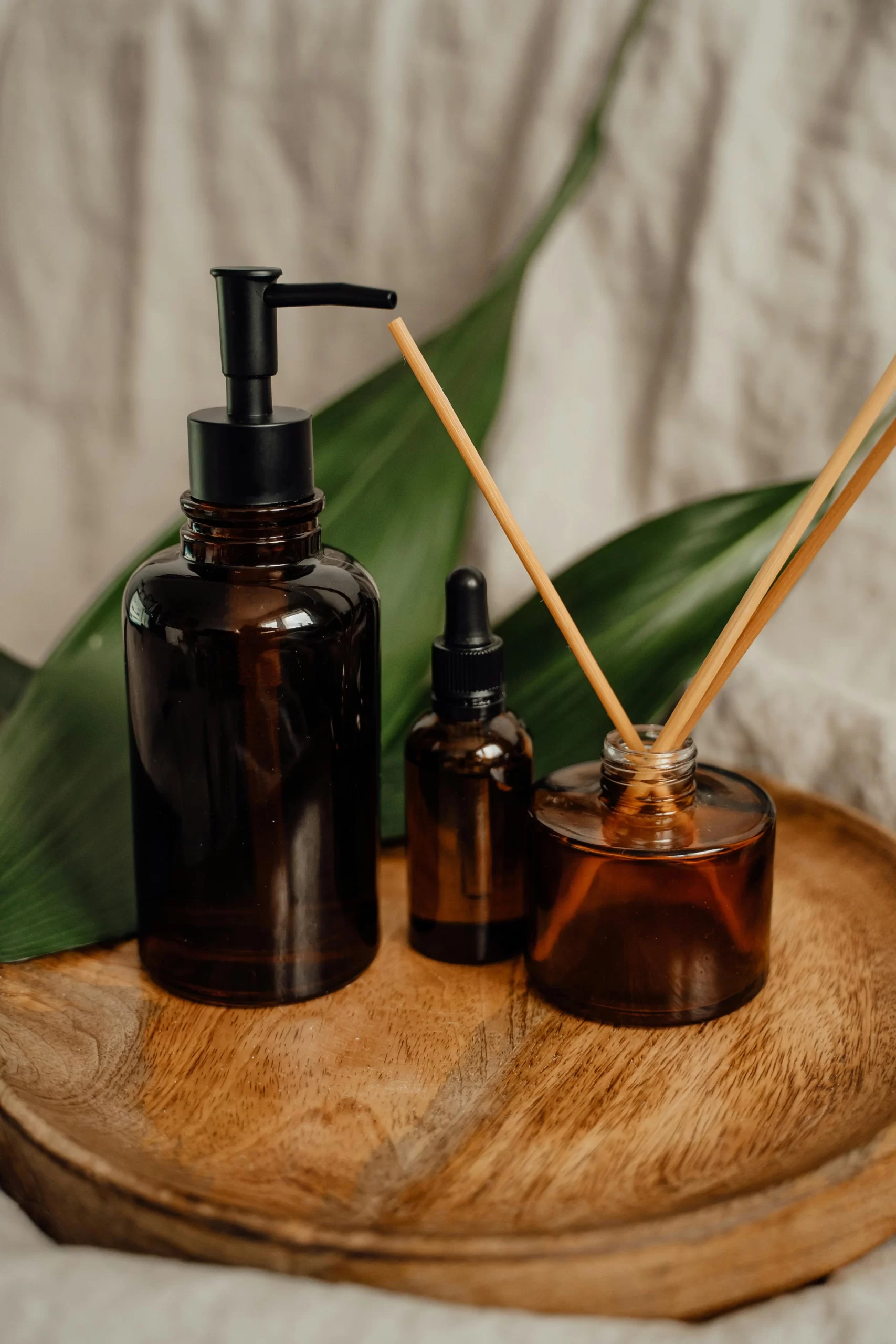In the world of perfumery, every drop of oil tells a story. Whether you’re crafting a luxury fragrance or developing a home scent line, understanding the difference between perfume essential oils and fragrant oils is crucial. While both are used to create alluring aromas, their origins, performance, and creative potential set them apart.
At Fasinaaroma, we specialize in producing high-quality fragrance oils designed for perfume, skincare, and home applications. In this guide, we’ll explore how each type of oil works—and why fragrant oils have become the foundation of modern scent creation.
1. Understanding Perfume Essential Oils: Nature’s Pure Expression
Perfume essential oils are concentrated extracts derived from flowers, fruits, leaves, or resins. Through steam distillation or cold pressing, they capture the natural scent molecules that plants release to communicate or protect themselves.
Examples include lavender, rose, sandalwood, and jasmine oils, all valued for their rich, complex aromas. These oils are 100% natural and carry therapeutic properties, making them popular in aromatherapy and niche perfume blends.
However, their natural origin comes with challenges:
- Limited stability — some essential oils evaporate quickly or react to light and air.
- High cost — rare botanicals like jasmine or oud can be extremely expensive.
- Inconsistent quality — seasonal and environmental changes affect scent strength and color.
In short, while essential oils offer purity, they may lack the consistency and longevity required for large-scale perfume production.
2. What Are Fragrant Oils? The Science of Scent Creation
Fragrant oils—sometimes called synthetic fragrance oils—are carefully composed blends of aromatic molecules, both natural and synthetic. These oils mimic or enhance natural scents, offering perfumers endless creative flexibility.
Unlike essential oils, which are bound by nature’s limits, fragrant oils can reproduce rare aromas (like ambergris or tuberose) or create entirely new ones not found in nature.
Advantages of fragrant oils include:
- Consistency: Every batch smells the same, ensuring reliable production quality.
- Longevity: Fragrance oils last longer on skin and fabrics.
- Safety and sustainability: No overharvesting of rare plants or endangered species.
- Affordability: They allow brands to create luxurious scents without high material costs.
That’s why leading perfumers and beauty brands often choose fragrant oils over natural essential oils when designing signature scents.
3. Key Differences Between Perfume Essential Oils and Fragrant Oils
| Aspect | Perfume Essential Oils | Fragrant Oils |
|---|---|---|
| Source | 100% natural plant extraction | Synthetic or blended aromatic compounds |
| Consistency | Varies by harvest and region | Highly consistent batch-to-batch |
| Longevity | Shorter-lasting | Long-lasting and stable |
| Scent Range | Limited to natural aromas | Unlimited creative possibilities |
| Cost | Expensive, especially rare types | More affordable and scalable |
| Applications | Niche perfumes, aromatherapy | Perfume, candles, diffusers, body care |
This comparison highlights why fragrance oils dominate modern perfumery and consumer products—they combine artistry with practicality.
4. Why Modern Perfumery Prefers Fragrance Oils
Modern perfumers aim for scents that not only smell captivating but also perform consistently across products—perfumes, shampoos, lotions, and diffusers alike.
Fragrant oils make this possible.
Here’s why they’re the preferred choice:
- Creative Flexibility: Fragrance oils allow the development of complex scent layers—top, heart, and base notes that evolve beautifully.
- Enhanced Diffusion: Perfect for long-lasting impact in perfumes and room fragrances.
- Versatility: Compatible with alcohol, wax, and cosmetic bases.
- Sustainability: They minimize environmental impact by reducing reliance on wild-harvested plants.
- Customization: At Fasinaaroma, our R&D team can tailor fragrance oil formulas to your brand’s identity—whether you seek floral elegance, woody sophistication, or gourmand sweetness.
5. Choosing the Right Oil for Your Brand or Project
When deciding between perfume essential oils and fragrant oils, consider your goals:
- If your focus is natural wellness or aromatherapy, essential oils align better with your brand story.
- If you aim for high performance, scalability, and creative uniqueness, fragrant oils are the smarter choice.
For commercial perfumery, hotel scents, diffusers, and body care products, fragrant oils provide unmatched balance between cost, performance, and olfactory impact.
At Fasinaaroma, we support brands worldwide with:
- Customized fragrance development
- OEM & private label production
- 10ml free sample service
- Stable, high-quality supply chain for bulk fragrance oils
6. The Future of Perfumery: Blending Nature and Innovation
The fragrance world continues to evolve. While perfume essential oils remind us of nature’s timeless beauty, fragrant oils represent human innovation—the art of enhancing scent experiences with precision and sustainability.
As modern perfumery moves toward personalization and eco-conscious production, the harmony between these two oil types will shape the next generation of scents.
At Fasinaaroma, we bridge the gap between nature and science, delivering fragrance oils that inspire creativity, consistency, and confidence in every formulation.
Conclusion: Create Your Signature Scent with Fasinaaroma
Whether you’re a perfume brand, cosmetic manufacturer, or wellness product creator, choosing the right oil defines your product’s success.
Perfume essential oils offer natural charm, while fragrant oils provide durability, versatility, and creative freedom.
Discover Fasinaaroma’s extensive fragrance oil collection—crafted to elevate your scents with modern elegance and long-lasting appeal.
Let us help you design the fragrance that defines your brand.

